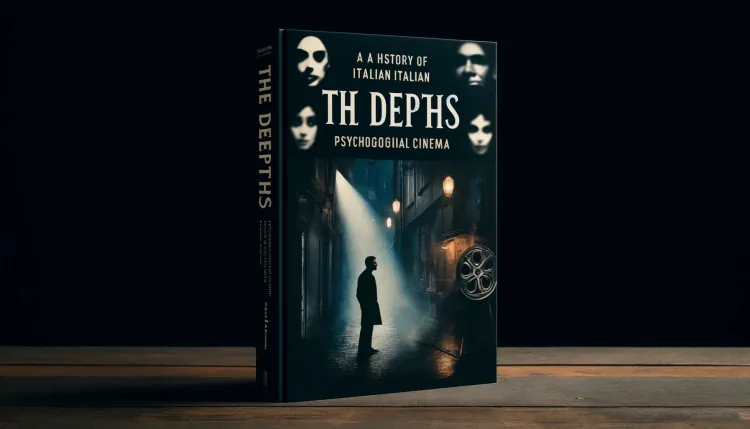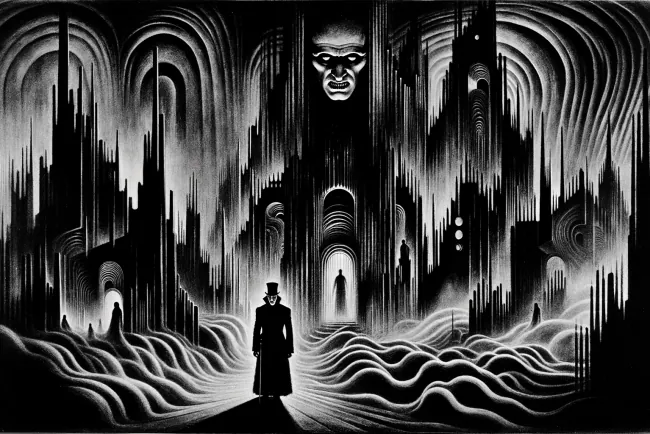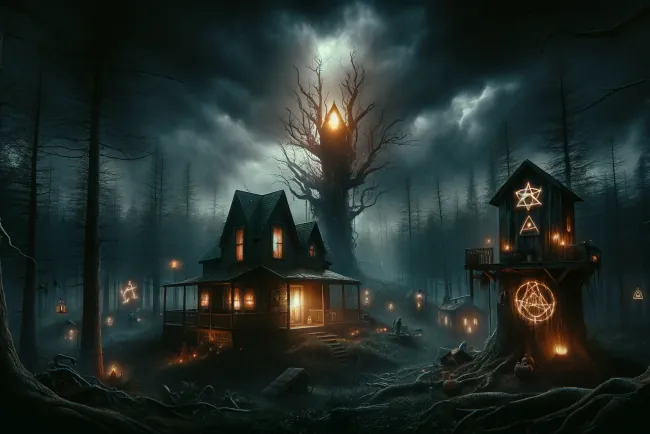The Depths: A History of Italian Psychological Cinema
Dive into the evolution of Italian psychological cinema, from its Neorealism roots to modern films that blend drama, horror, and existential inquiry

-
Introduction
- Overview of Italian psychological cinema and its contribution to global film.
-
Early Influences and Foundations
- Role of Italian Neorealism in setting the stage for psychological explorations.
- Impact of early directors like Roberto Rossellini and Vittorio De Sica.
-
The 1960s: A New Wave of Psychological Narratives
- Shift from Neorealism to more introspective storytelling.
- Key films and directors: Michelangelo Antonioni’s "Red Desert" and Federico Fellini’s "8½."
-
The 1970s: Psychological Complexity and Genre Blending
- Emergence of films blending psychological drama with other genres.
- Examples include Dario Argento’s giallo films and Bernardo Bertolucci’s "Last Tango in Paris."
-
The Influence of Psychological Themes in Modern Cinema
- Continuation of psychological themes in contemporary Italian cinema.
- Integration of broader narratives addressing social and political issues.
-
Conclusion
- Summary of the enduring impact of Italian psychological cinema on global filmmaking.
-
FAQs
- How did Italian Neorealism influence psychological cinema?
- What distinguishes Italian psychological films from other genres?
- Who are some contemporary Italian directors exploring psychological themes?
Introduction Italian psychological cinema, known for its intricate narrative styles and deep thematic explorations, occupies a prominent place in the annals of film history. This genre blends drama, horror, and suspense to probe the complexities of the human psyche, offering audiences visually striking and thought-provoking cinematic experiences.
Early Influences and Foundations The genesis of Italian psychological cinema is often linked to the Neorealism movement of the 1940s and 1950s. Although these films primarily depicted the socio-economic hardships of post-war Italy, they inherently addressed the psychological strain on individuals. Directors like Roberto Rossellini and Vittorio De Sica were pioneers in portraying the profound impact of external circumstances on internal states.
The 1960s: A New Wave of Psychological Narratives The 1960s heralded a shift towards more introspective cinema, with filmmakers exploring the inner turmoils and existential crises of their characters. Michelangelo Antonioni’s "Red Desert" and Federico Fellini’s "8½" were seminal in this regard, delving deep into personal identity and human connections, and setting new standards for psychological narrative depth.
The 1970s: Psychological Complexity and Genre Blending During the 1970s, Italian psychological cinema saw a fusion of genres, as exemplified by Dario Argento’s giallo films, which wove psychological drama into frameworks of horror and mystery. "Deep Red" explored memory and trauma, while Bernardo Bertolucci’s "Last Tango in Paris" examined intense emotional dynamics, pushing the boundaries of cinematic expression.
The Influence of Psychological Themes in Modern Cinema In modern times, Italian filmmakers continue to infuse psychological insights into their works, often intertwining them with socio-political commentary. Paolo Sorrentino’s "The Great Beauty" tackles themes of existential ennui, while documentaries like Gianfranco Rosi’s "Fire at Sea" address the psychological impact of contemporary crises, showcasing the genre’s adaptability and relevance.
Conclusion Italian psychological cinema has continuously evolved, from its roots in Neorealism to its sophisticated modern expressions, consistently using the film medium to explore and reflect on the intricacies of the human psyche. Through its rich narrative tapestry, this genre not only contributes significantly to psychological filmmaking but also influences broader cinematic discussions globally.
FAQs
- How did Italian Neorealism influence psychological cinema?
- Italian Neorealism introduced a focus on the everyday realities and emotional states of ordinary people, setting the foundation for subsequent films to explore psychological themes more deeply.
- What distinguishes Italian psychological films from other genres?
- Italian psychological films are characterized by their deep exploration of characters’ inner lives, often merging this inquiry with dramatic, suspenseful, or horrific elements to enhance the narrative impact.
- Who are some contemporary Italian directors exploring psychological themes?
- Contemporary directors like Paolo Sorrentino and Gianfranco Rosi continue to explore psychological themes, integrating them into films that also reflect on Italy’s social and cultural issues.
Discover more about Italian cinema's exploration of the human mind and its impacts on narrative film at Kiksee Magazine.
What's Your Reaction?






















